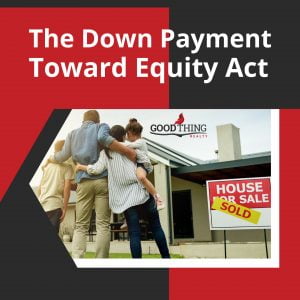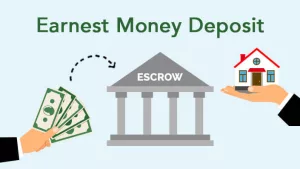The $25,000 Downpayment Toward Equity Act: Explained (2023)
Go Back To Previous PageIf you buy a home for the first time, you might qualify for various payment assistance programs, such as a grant of up to $25,000. This is due to President Biden’s work on the Downpayment Toward Equity Act of 2021, also called the $25,000 First-Time Buyer Home Grant. It aims to keep Biden’s promise to help Americans buy good homes.
Toward Equity Act of 2021, also called the $25,000 First-Time Buyer Home Grant. It aims to keep Biden’s promise to help Americans buy good homes.
The Act is being considered in Congress and could be passed soon. As Biden promised over the past year, this will help with the down payment.
The government plans to narrow the racial wealth and homeownership gap by offering cash grants to first-generation homebuyers.
This article explains the Downpayment Toward Equity Act. It shows which first-time buyers can qualify, how to get your cash grant, and when the bill might be passed.
An increase in support for owning a home.
Through the Downpayment Toward Equity Act, first-time home buyers may be eligible for a $25,000 cash grant to purchase a new home.
The $25,000 First-Time Buyer Home Grant, also known as the Act, went live in 2021 as part of President Biden’s campaign promise to help Americans purchase quality housing. Although not yet enacted, President Biden’s 2024 Fiscal Year budget proposal has reaffirmed the grant program.
This article will provide an overview of the program, including eligibility requirements for first-time homebuyers, the grant-claiming process, and expected availability dates.
What Is the $25,000 Down Payment Toward Equity Act?
The Down Payment Toward Equity Act provides a grant for first-time home buyers. President Biden champions the program, offering up to $25,000 to help cover home-buying expenses. The money can be used for closing costs, down payment, and interest. Purchasing can become more difficult because of these expenses, but action will ultimately streamline the process.
Not everyone is eligible for the $25,000 Down Payment Toward Equity Act 2021. To qualify, you must meet specific requirements.
We will go over these requirements to help you understand if you are eligible.
Requirements to be eligible for the $25000 down payment
If you wish to apply for the $25,000 Down Payment Equity Act, please note that the eligibility criteria will change as the Act evolves.
To qualify for the $25,000 grant, you will need to fill out an application and meet the following requirements:
- Purchasing a home as a first-time buyer.
- Purchasing a primary residence rather than a vacation home or secondary residence
- A first-generation buyer, a person from foster care, or someone whose parents defaulted on a home loan.
- Meeting household income limitations in your specific area
- Using a government-backed mortgage loan
These will qualify you for the $25,000 grant. This grant aims to assist first-time homebuyers in purchasing their place and reducing income and race inequality in homeownership.
The Down Payment Toward Equity Act aims to address housing inequalities and increase accessibility to home ownership.
$25,000 Homebuyer Grant Application Process
Apply for the $25k First-Time Homebuyer Grant. Wait for the review of your application status. Once approved, receive the grant funds.
1. Apply for the $25k First-Time Homebuyer Grant
If you think you qualify for the $25,000 grant for first-time homebuyers, start by sending your financial and background information.
2. Wait for the review of your Status
After reviewing your submitted documents, authorities will confirm your eligibility for the $25,000 first-time homebuyer grant. You will receive a notification if further information is required or if you are ineligible.
3. Get Your Funds Approved
Once we review your information, we’ll approve the funds. Awarded funds vary by person, with most buyers receiving $25,000 for their home. However, those who have experienced discrimination because of skin color may be eligible for a bonus of $5,000.
4. Authorities distribute the $25k Grants
After receiving the $25,000 grant, the individual can use it for the mortgage or down payment, making the home-buying process more manageable. This prospect will revolutionize the housing industry.
Do you know when the $25,000 first-time homebuyer grant is available?
As of July 2022, the Down Payment Toward Equity Act is still pending. It has not yet become law, so the funds are not accessible or available for application. Nevertheless, seeing something this helpful and gaining traction in positions of power is exciting.
If this Act becomes law, eligible individuals will automatically receive their earned money without any complicated paperwork. The mortgage lender will apply for the money after participating in a two-hour session with a government-approved counselor.
$25k First-Time Homebuyer Grant Rules for Moving
Limitations of the $25,000 Down Payment Act of 2021
- If you move within the first five years of owning your home, you must repay some of the grant. If you move within the first year, you only have to repay the whole amount.
The repayment process is straightforward and uncomplicated. If you obtain the grant, committing to staying in your home for at least five years is advisable before accepting it. However, remember that the legislation may evolve before going live.
What Is The Program’s current Status?
On July 16, 2023, Congress introduced a bill for a $25,000 grant for first-time home buyers. This bill will replace the expired Downpayment Toward Equity Act of 2021 (H.R. 4495).
Rep. Maxine Waters wrote the earlier and current versions of The Downpayment Toward Equity Act in the House. Senator Raphael Warnock wrote the Senate version in the last Congress meeting.
Senator Warnock has not yet reintroduced the Downpayment Toward Equity Act in the Senate. The timeline for the Act is as follows:
- July 17, 2021: H.R. 4495 introduced as the Downpayment Toward Equity Act of 2021
- September 30, 2021: S. 2920 introduced as the Downpayment Toward Equity Act of 2021
- February 10, 2022: Hearings held in Senate
- June 22, 2022: Hearings held in Senate
- March 9, 2023: White House budget allocates $175 billion for affordable housing programs, including $10 billion for cash grants for first-time home buyers
- June 21, 2023: H.R. 4231 introduced as the Downpayment Toward Equity Act of 2023
Home buyers cannot claim the Downpayment Toward Equity grant until the bill is enacted. They can look at the Conventional 100 mortgage. This option offers 100% financing and covers closing costs. It is available for first-time buyers and has lower mortgage interest rates.
$25,000 First Time Homebuyer Program Bottom Line
The Downpayment Toward Equity Act was introduced in Congress in 2021 but has not been enacted since mid-2023.
Congress is still considering the bill, which is open to debate, negotiation, and possible changes. The president must approve and sign it into law. Despite this, many legislators and industry experts remain optimistic that the bill will soon benefit first-time buyers.
The most recent development occurred on March 9, 2023. The White House proposed its budget for the fiscal year 2024, allocating $175 billion for affordable housing programs, including $10 billion for cash grants for first-time home buyers.
Some industry experts anticipate that the legislation will go live in some capacity before the end of 2023.
As of mid-2023, the Down Payment Toward Equity Act of 2021 has not yet been passed. The Biden administration hopes to provide relief and make homes more affordable. If the $25,000 first-time homebuyer grant becomes law, it will help many people. All we can do is wait and see if it passes.


